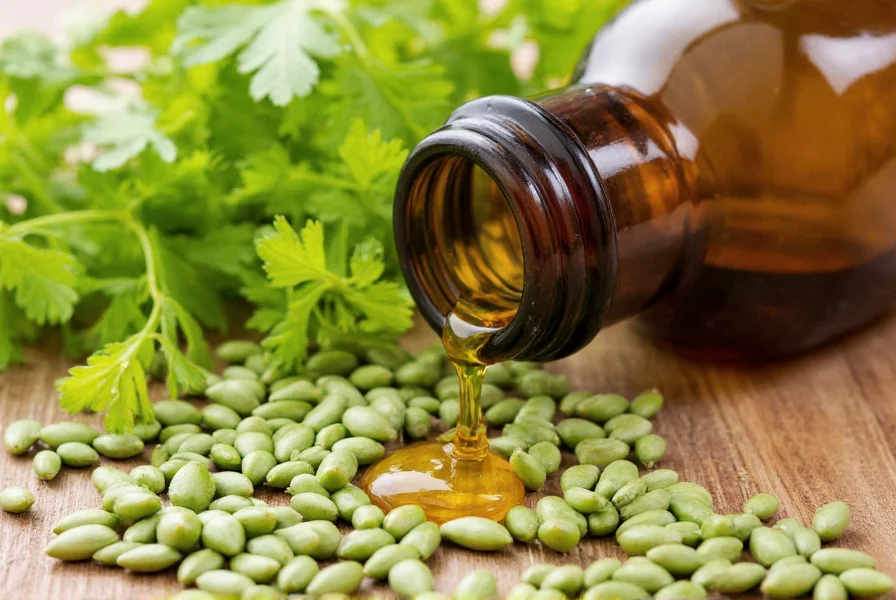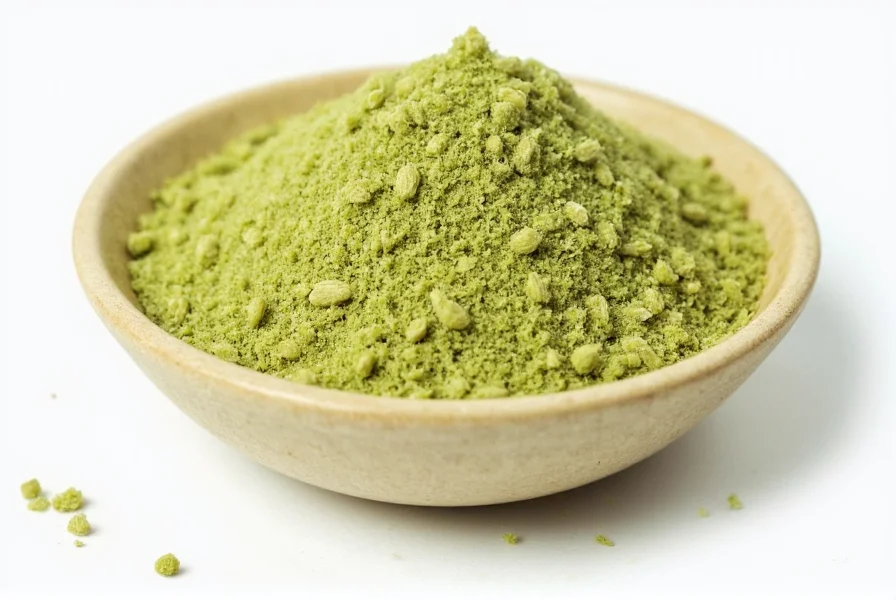Celery seed extract has gained attention in natural health circles for its potential therapeutic properties. This comprehensive review examines the scientific evidence behind this botanical supplement, separating established facts from speculation while providing practical guidance for informed decision-making.
What Exactly Is Celery Seed Extract?
Celery seed extract comes from the seeds of Apium graveolens, the same plant that produces the celery stalks common in grocery stores. Unlike the vegetable itself, the seeds contain concentrated bioactive compounds, particularly 3-n-butylphthalide (3nB), sedanenolide, and other phthalides that give celery its distinctive aroma and potential health properties.
The extraction process typically involves solvent extraction or supercritical CO2 methods to concentrate these compounds. High-quality extracts standardize the 3nB content, which ranges from 1-60mg per serving depending on the product. This standardization represents one of the key differences between celery seed extract and simple celery seed powder.

Historical Context and Traditional Uses
Traditional medicine systems have utilized celery seeds for centuries. Ancient Egyptian, Greek, and Ayurvedic practitioners documented celery seed applications for:
- Relieving joint discomfort and inflammation
- Supporting healthy circulation
- Addressing digestive concerns
- Managing occasional sleep difficulties
These historical applications provide context for modern research directions, though traditional use doesn't equate to scientifically proven efficacy. Understanding this background helps frame contemporary scientific investigation into celery seed extract benefits and mechanisms.
Scientific Research on Potential Health Benefits
Modern research has begun investigating several potential health applications of celery seed extract, with varying levels of evidence.
Blood Pressure Management
One of the most researched areas involves cardiovascular health. A 2013 study published in Nutrition Reviews analyzed multiple animal and human trials, finding that 3nB may help maintain healthy blood pressure levels through:
- Vasodilation effects (relaxing blood vessels)
- Modulation of calcium channels
- Potential diuretic properties
| Study Type | Participants | Results | Limitations |
|---|---|---|---|
| Human Clinical Trial (2009) | 30 adults with mild hypertension | 150mg daily reduced systolic BP by 8-9 mmHg after 6 weeks | Small sample size, short duration |
| Animal Study (2017) | Rats with induced hypertension | Significant BP reduction at 60mg/kg dosage | Not directly translatable to humans |
| Systematic Review (2020) | Analysis of 7 studies | Modest BP effects observed, but evidence quality rated as low | Heterogeneous study designs |
Anti-Inflammatory Properties
Research suggests celery seed extract may influence inflammatory pathways. A 2018 Journal of Ethnopharmacology study demonstrated that 3nB inhibited COX-2 and LOX enzymes in vitro, similar to some conventional anti-inflammatory medications but through different mechanisms.
While promising, most anti-inflammatory research remains at the cellular or animal model stage. Human clinical trials specifically examining celery seed extract for inflammatory conditions like arthritis are limited and generally small-scale.
Antioxidant Effects
The extract contains several antioxidant compounds that may help combat oxidative stress. A 2021 analysis in Food Chemistry found celery seed extract demonstrated significant free radical scavenging activity in laboratory tests, though the relevance to human health outcomes requires further investigation.
Safety Profile and Potential Concerns
Understanding celery seed extract safety considerations is crucial for responsible use.
Common Side Effects
Most people tolerate celery seed extract well at recommended doses, but some may experience:
- Mild digestive upset
- Skin sensitivity (particularly with topical application)
- Increased sun sensitivity
Significant Safety Considerations
Certain populations should exercise caution or avoid celery seed extract:
- Pregnant and breastfeeding women: May stimulate uterine contractions
- Individuals with kidney disorders: Potential diuretic effects require medical supervision
- People on blood pressure medications: Risk of additive effects causing hypotension
- Those taking blood thinners: Theoretical interaction risk though not well-documented
- Individuals with celery allergy: Cross-reactivity possible
Practical Usage Guidelines
Based on current evidence, here are evidence-informed usage recommendations:
Dosage Considerations
Research studies have used varying doses, but common ranges include:
- For blood pressure support: 150-300mg daily of standardized extract (providing 30-60mg 3nB)
- General antioxidant support: 50-150mg daily
Most clinical effects appear after 4-6 weeks of consistent use. Starting with lower doses and gradually increasing helps assess individual tolerance.
Product Selection Criteria
When choosing a celery seed extract supplement, consider these factors:
- Standardization: Look for products specifying 3nB content (typically 20-60mg per serving)
- Third-party testing: Certifications from NSF, USP, or ConsumerLab indicate quality verification
- Transparency: Reputable brands disclose extraction methods and full ingredient lists
- Form: Capsules typically provide more consistent dosing than liquid extracts
Current Research Gaps and Future Directions
While preliminary research shows promise, significant knowledge gaps remain:
- Long-term safety data beyond 6 months is lacking
- Optimal dosing strategies for specific health concerns need clarification
- Direct comparisons with conventional treatments are limited
- Effects on hard clinical endpoints (like cardiovascular events) haven't been studied
Researchers are currently investigating celery seed extract's potential role in metabolic health, neurological protection, and additional applications, though these areas remain speculative without robust human trials.
Conclusion: A Balanced Perspective on Celery Seed Extract
Celery seed extract shows promise as a natural supplement with potential cardiovascular and anti-inflammatory benefits, supported by preliminary research and traditional use. However, current evidence doesn't support replacing conventional medical treatments for serious conditions.
For those considering celery seed extract, consultation with a healthcare provider is essential, particularly for individuals with existing health conditions or those taking medications. As with any supplement, realistic expectations and attention to quality are crucial for safe, informed use.
Frequently Asked Questions
What is the primary active compound in celery seed extract?
The primary bioactive compound in celery seed extract is 3-n-butylphthalide (3nB), which typically ranges from 1-60mg per serving depending on the product's standardization. This compound is responsible for many of the extract's studied physiological effects, particularly regarding cardiovascular health.
How long does it take to see effects from celery seed extract?
Most research studies showing measurable effects used celery seed extract for 4-6 weeks. Blood pressure studies typically demonstrated changes after 4 weeks of consistent daily use. Individual responses vary based on health status, dosage, and the specific health concern being addressed.
Can celery seed extract interact with blood pressure medications?
Yes, celery seed extract may enhance the effects of blood pressure medications, potentially causing blood pressure to drop too low. Individuals taking antihypertensive medications should consult their healthcare provider before using celery seed extract and may require medication adjustments under medical supervision.
Is celery seed extract safe for long-term use?
Limited data exists on long-term safety beyond 6 months. Most clinical trials have examined short-term use (4-12 weeks). While generally well-tolerated in these studies, comprehensive long-term safety data is lacking. Periodic evaluation with a healthcare provider is recommended for ongoing use.
How does celery seed extract differ from celery seed powder?
Celery seed extract is a concentrated form that standardizes active compounds like 3nB, while celery seed powder is simply ground seeds without concentration. Extracts typically provide 10-50 times more concentrated bioactive compounds than the powder form, making dosing more precise and effects more consistent in research settings.











 浙公网安备
33010002000092号
浙公网安备
33010002000092号 浙B2-20120091-4
浙B2-20120091-4